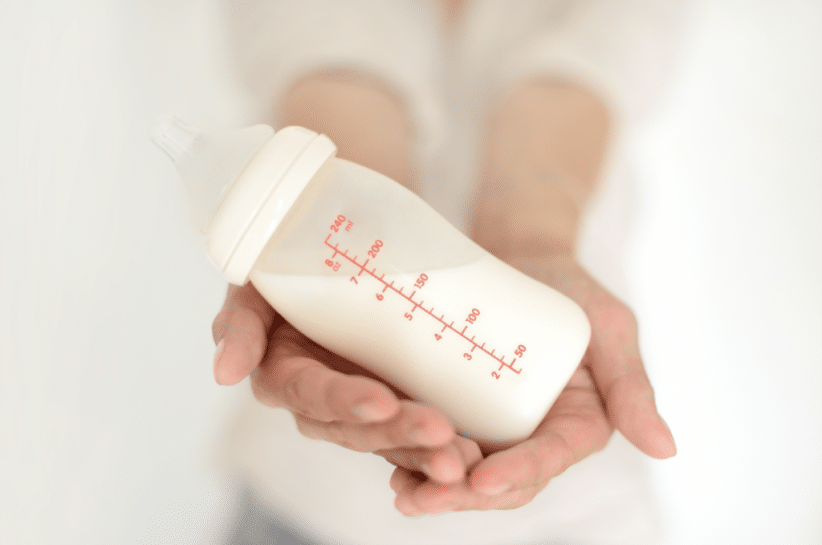Ever swapped your natural hair color for a new hue? Then you owe Eugene Schulle, the guy who gave us hair dye, a huge thank you for the chance to take your locks from honey to chestnut in about 45 minutes — and then back if you don’t like it. And while a new color usually changes the way you accessorize, or necessitates you find a new fave shade of shadow, all the henna, highlights and hue re-dos in the world won’t change how your natural color can affect your mood, mind and mojo.
Here’s the scoop on what your natural shade means for your personality, your body, and even your future health.
Redheads
More sensitive to pain: The next time “Desperate Housewives’ ” Marcia Cross goes to the dentist, she might want to ask for a little more Novocaine. It turns out redheads are more resistant to local anesthetics used in dentistry than other hair colors, which may lead to more anxiety regarding painful dental procedures, according to a recently published study led by Cleveland Clinic anesthesiologist Daniel Sessler, MD. Redheads may require up to 20 percent more anesthesia than other colors because reds’ melanocortin-1 receptors (the DNA responsible for your hair color) are malfunctioning, says Sessler.
“This can lead to dental care-related anxiety and dental care avoidance,” he says.
Combat your color: Talk with your dentist before having any dental work done, especially if you’re not your natural color. “Establish a method where you’ll communicate any discomfort for additional Novocaine, or similar local anesthesia, to be administered,” says Sessler. You can also talk to your dentist about taking pain meds, like ibuprofen, at least one hour before plopping down in his chair, to lessen any discomfort.
Better in bed: Notoriously thought to be red-hot lovers, experts say redheads just might be more passionate than other hair colors. They’re also more spontaneous, creative and artistic. Because red is reminiscent of fire, this has become a self-fulfilled prophecy.
“Fire is associated with passion and unruliness. And when people expect you to be ‘hot,’ you can actually become what they expect of you,” says Svetlana Kogan, MD, internist at Lenox Hill Hospital.
Combat your college: But when those burning embers start glowing red-hot, Kogan says keep your wits about you. Don’t let spontaneity lead to forgetting the condom or losing track of taking your oral contraceptives.
Hot tempered: Redheads really are fiery! Experts say there may be a link between personality quirks (like a hot temper) and your flame mane. Thanks to the location of that pesky melanocortin-1 receptor, reds are also more likely to have high blood pressure. The culprit: melanin production (which is controlled by MC1R).
“The genes responsible for the ability to produce anti-stress hormones live close to melanocortin-1 receptors,” says internist Margaret Lewin, MD. And sometimes the MC1R mutation that causes red hair can cause faulty production of anti-stress hormones.
“The inability to manage stress is a factor in high blood pressure,” adds Lewin.
Combat your color: The next time you feel like you’re going to blow your top, munch on an apple. German researchers recently discovered the quercetin in apples can lower your blood pressure. It’s good at lowering bad cholesterol, too.
Higher risk for Parkinson’s Disease: About 18 million natural redheads live in the U.S. and a new Harvard Medical School study says all those redheads have an almost 50 percent greater chance of developing Parkinson’s than other colors. Lewin says the gene responsible for those fiery hues resides a bit too close to the one whose mutation can increase the risk for Parkinson’s disease. Those close quarters mean this duo tends to “travel together,” leading to almost half of the 30,000 women who are diagnosed every year having red hair.
Combat your color: Several studies, including a new one from the Universidade Luterana do Brasil, in Brazil, are showing promise that folic acid might cut a woman’s chances of developing Parkinson’s. Unless you’ve got a bun in the oven, aim for about 400 micrograms a day. One cup of orange juice has about 25 percent of your daily recommended dose. Pair that with a fortified cereal that can have anywhere from 25 to 100 percent of your daily recommended dose. Many multi-vitamins formulated for women also furnish folic acid.
Blondes
Protect your vision: The fairer your hair, the greater your risk of developing age-related macular degeneration, the eye disease that can lead to blindness. Got baby blue peepers? Experts say that ups your chances.
Combat your color: Even though it doesn’t usually strike until later in life, experts say it’s smart for young blondes to take care of their eyes now. According to a new study from the Kwansei Gakuin University in Japan, a diet rich in lutein and zeaxanthin can protect your peepers. There’s no official recommended daily requirement, but for optimum eye health, Kogan suggests consuming six to 10 milligrams a day. You can get that in one cup a day (total) of green veggies like kale, spinach, zucchini, broccoli and snow peas. It won’t hurt to up your folic acid intake, too. Harvard scientists found the combo of folic acid, pyridoxine, and cyanocobalamin decreased the risk of developing age-related macular degeneration by 34 percent.
Smarter than stereotypes suggest: Blondes may seem impressionable and easy but, in reality, experts say they’ve got a great memory, large lexical knowledge and are good at mathematics.
Embrace your color: Don’t be afraid to show off your skills. Clinical psychologist Carol Kryder, in Boulder, CO., says exhibiting confidence, and shattering “dumb blonde” stereotypes builds self-esteem. “Having healthy self-esteem can lead to less anxiety and overall better mental and emotional health.”
Greater chance of skin cancer: It’s no secret fair skin ups your chances. But, researchers at Harvard say that no matter your skin tone, fair-hair is a high-risk factor, too. “Blondes produce less melanin, and that can leave them especially sensitive to sun burns, sun damage and developing skin cancer,” says dermatologist Joel Schlessinger MD, and president emeritus of the American Society of Cosmetic Dermatology and Aesthetic Surgery.
Combat your color: To reduce your risk of melanoma, Dr. Schlessinger says don’t leave home without a full-spectrum SPF 30 sunscreen. “It’s possible to get sunburned when it’s partly cloudy or even during the winter. And over-exposure to the sun — even if it’s cold outside — greatly increases the odds of developing the disease.”
Brunettes
Less Stressed: Since there have been more brunette Nobel Prize winners than any other color, French researchers say the darker haired folks are “doers”. Brunettes also are the least likely to get stressed on the job, only showing signs of giving up after exhausting all possible resources.
Embrace your color: Don’t let all that “doing” do you in. “It’s important to know it’s OK to say ‘no’ or take time for yourself to stay mentally and emotionally fresh,” says Kryder. Recharge your batteries by building an hour or two of “me time” into your weekly schedule. Catch up on TiVo, read a book or clean or try a new recipe. “Anything that’s just for you,” she says.
Prone to thinning locks: Brown tresses tend to have fewer hair follicles than other colors — and fewer hair follicles mean a greater risk of female hair loss, especially if you’ve got a family history of hair loss. Experts estimate that one in four American women, almost 30 million, experience female hair loss and a majority — more than 60 percent — are brunette.
Combat your color: You can’t change genetics, but Dr. Lewin says you can change what you pop in your mouth. “One study found 72 percent of young women with hair loss had iron deficiencies,” she says. To spare your hair before thinning strikes, make sure you get the recommended 15 milligrams a day. One cup of instant oatmeal provides half your daily dose while three ounces of lean beef provides 20 percent. Not fond of iron-rich foods? Dr. Lewin suggests “talking to your doctor about a supplement.”
More confident: Blondes may get credit for having all the fun, but experts say brunettes have all the confidence. And a study from the University of Westminster says that despite the stereotypes, men are more attracted to brunettes rather than blondes.
Embrace your color: Go ahead and release your inner badass. To tap into all that confidence, Kryder suggests starting an achievement journal.
“Jotting down the goals you’ve accomplished and hurdles you’ve side-stepped will help boost confidence and remind you of what you’re capable of.” It’ll help you manage stress levels, too.





















